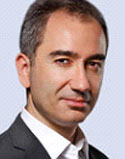Enter Erdoğan and Putin

By Mustafa Akyol
February/04/2015
The political model that President Tayyip Erdoğan has been establishing for Turkey in the past two-three years — and aims to perfect with a new constitution based on a “presidential system” — has been famously controversial. Erdoğan and his supporters call this model “democracy” at its best, where the elected leader of the nation knows no limits. Turkish opposition, in return, calls the system a “dictatorship,” a term that often looks contradictory to free and fair elections. For my part, I have latterly preferred the term “illiberal democracy,” where free and fair elections co-exist with very illiberal (authoritarian, paranoid, revengeful) politics.
Many observers have also pointed out the similarities between Erdoğan’s model and that of Russian President Vladimir Putin. These similarities certainly exist, and they are worth looking into in order to see what the real problem is.
At this point, let me recommend to you a recent article by Howard Eissenstat, assistant professor of Middle East history at St. Lawrence University. Titled “Stunted Democracy: Erdoğan, the AKP, and Turkey’s Slide into Authoritarianism,” the article is a good summary of what has gone wrong during the ruling Justice and Development Party’s (AKP) experience, which in fact had begun with a very promising era of reform and liberalization. To understand the nature of the problem, Eissenstat notes that “comparisons to Vladimir Putin are useful.”
Yet, as Eissenstat also warns, these comparisons should begin by underlining the differences. First of all, “elections are no doubt fairer in Turkey than they are in Russia.” In other words, Erdoğan’s electoral legitimacy cannot be questioned, whereas Putin’s can be, as elections in Russia are notoriously manipulated. Secondly, “Erdoğan is less cynical than Mr. Putin,” because, for example, “the assassination of journalists is not part of his repertoire.”
Freedom House also confirms such differences, as it defines the Turkish press as “partly free” while the press in Russia is bluntly “not free.” In its overall rating of freedom, Turkey ranks as a “partly free” nation, in the same club as Mexico, while Russia is “not free,” in the same club as Iran.
The similarities between Erdoğan’s Turkey and Putin’s Russia, on the other hand, are striking, and they point to the similar political psychologies in both countries. Eissenstat is right on point, in my view, when he observes the following:
“The Putin and Erdoğan comparison is particularly helpful in understanding the latter’s attitude toward religion. The AKP is routinely defined as ‘Islamist,’ but, despite the clear importance of religion to the AKP brand, it cannot be understood as Islamist in the usual sense of the word. After more than a decade in power, there has been no attempt to amend Turkey’s secular statutes with elements of fiqh [i.e., shariah]. Polygamy, while not uncommon, is still illegal. Alcohol, while heavily taxed, is still easy to come by. With state support, religion is clearly playing a larger role in Turkish public life than ever before, but its use is clearly embedded within a nationalist rather than Islamic narrative. References to Islamic texts or to early Islamic history are exceedingly rare; Erdoğan speaks of the Ottomans, not the Prophet and his companions. His pronouncements on women in the workplace, childbearing, or alcohol consumption are couched in a rhetoric of traditional values or ‘science.’ Like Putin’s embrace of the Orthodox Church, Erdoğan’s embrace of Islam is coupled with a nostalgia for imperial greatness and a rhetoric of social conservatism.”
Source: http://www.hurriyetdailynews.com/enter-erdogan-and-putin.aspx?PageID=238&NID=77841&NewsCatID=411




 Moderate Islamist here
Moderate Islamist here


0 comments:
Post a Comment